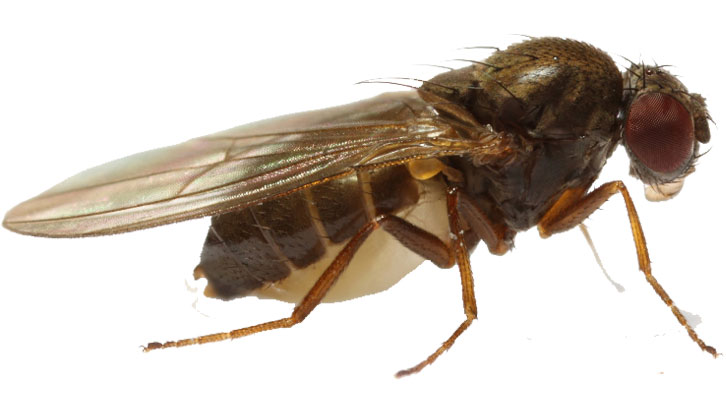Persistence of Phenotypic Plasticity

In order to survive in a world that is constantly changing, organisms have to adapt to new environmental conditions. However, when the environment changes very quickly, the best thing for an organism to be is plastic. Phenotypic plasticity, i.e. the ability of an individual to present several phenotypes according to the environment, is thus important for survival. This is true if plasticity leads to a better performance of the organism in the new environment, although some studies have shown that this is not always the case.
Understanding how plasticity evolves and is maintained has been the subject of several theoretical and empirical studies. One common expectation is that in homogeneous environments plasticity will be lost, especially if it presents an energetic cost to the organism. In order to tackle this issue we developed an experimental evolution study focusing on the ability of different populations of a fruit fly (Drosophila subobscura) to respond to different temperatures, when they were adapting to a homogeneous thermal environment. We chose three different populations that were subject in nature to different thermal regimes: Groningen (Netherlands – colder environment), Montpellier (France) and Adraga (Portugal – warmer environment) and studied how their thermal plasticity changed (or not) across generations.
We expected, in the beginning, for all populations to show high plasticity for several traits and that plasticity would be lost throughout generations as populations adapted to the homogeneous environment. However, we observed that plasticity was preserved under constant conditions, although it evolved for some traits in the novel environment. Some of these evolutionary patterns showed differences between populations. Nevertheless, the final plastic response was similar in all populations, leading to convergence on thermal plastic response, with better performance for fecundity at the higher temperature.
Figure 1: Persistence of thermal plasticity during adaptation to a constant environment. All populations (Adraga in blue, Montpellier in red, Groningen in green) displayed clear thermal plasticity for fecundity (differences in performance across assayed temperatures) when recently brought to the lab (generation 6). During evolution in a constant thermal environment, plasticity was not lost as could be theoretically predicted, but there was population convergence (generation 28).
Interestingly, while for adult traits we saw that plasticity evolved, for juvenile traits (such as viability and development time) plasticity maintained itself during the study. This suggests that the way in which plasticity evolves is dependent on the life stages of the organism.
In general, our study shows that evolution in a new, constant environment does not appear to have reduced the ability of populations to respond plastically to different environmental challenges, keeping their options open for tolerating rarely occurring environments. These findings have important implications for conservation biology, particularly considering concerns of global warming.
Pedro Simões
Margarida Matos
Centre for Ecology, Evolution and Environmental Changes (Faculdade de Ciências - Universidade de Lisboa)
Mauro Santos
Genomics, Bioinformatics and Evolution Research Group (GGBE)
Department of Genetics and Microbiology - UAB
mauro.santos@uab.es
References
Fragata, Inês; Lopes-Cunha, Miguel; Bárbaro, Margarida; Kellen, Bárbara; Lima, Margarida; Faria, Gonçalo S.; Seabra, Sofia G.; Santos, Mauro; Simões, Pedro; Matos, Margarida. Keeping your options open: maintenance of thermal plasticity during adaptation to a stable environment. Evolution. 2016, vol. 70, num. 1, p. 195-206. doi: 10.1111/evo.12828.

